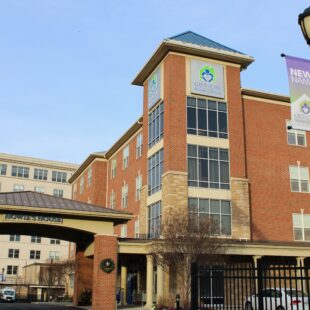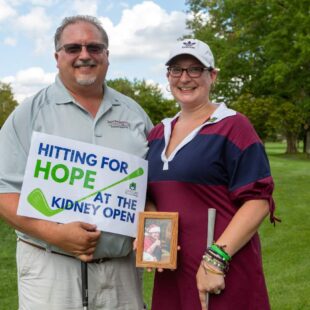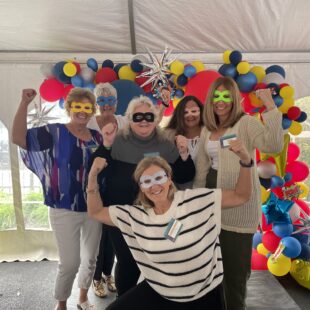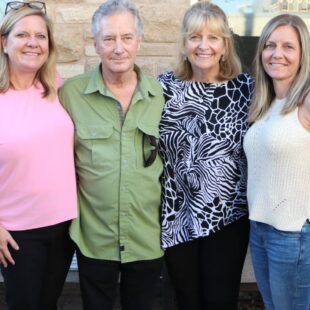Senator Bob Casey Speaks Out for National Family Caregivers Month
November is officially National Family Caregivers Month and this year’s theme is respite, a temporary relief from something stressful and difficult. The Caregiver Action Network outlines: “Respite” – the chance to take a breather, the opportunity to re-energize – and it is as important as any other item on the caregiver’s to-do list. People […]
November is officially National Family Caregivers Month and this year’s theme is respite, a temporary relief from something stressful and difficult. The Caregiver Action Network outlines:
“Respite” – the chance to take a breather, the opportunity to re-energize – and it is as important as any other item on the caregiver’s to-do list. People think of respite as a luxury, but considering caregivers’ increased risk for health issues from chronic stress, those risks are a lot costlier than some time away to recharge.
 In honor of National Family Caregivers Month, the Howie’s House has been posting wellness tips and support resources for caregivers, as well as recognizing transplant caregivers and their efforts. Many of the guests staying at Gift of Life Howie’s House are caregivers to their loved one waiting for, undergoing, or recovering from an organ transplant. The Howie’s House provides resources and support to caregivers throughout the Gift of Life Region through its Caregiver Lifeline Program. Whether it be self-care tips, keeping patient to caregiver relationships healthy, or numerous other resources, the Caregiver Lifeline Program provides services specifically tailored to the needs of organ transplant patients, family members and caregivers inside and outside the walls of the Howie’s House.
In honor of National Family Caregivers Month, the Howie’s House has been posting wellness tips and support resources for caregivers, as well as recognizing transplant caregivers and their efforts. Many of the guests staying at Gift of Life Howie’s House are caregivers to their loved one waiting for, undergoing, or recovering from an organ transplant. The Howie’s House provides resources and support to caregivers throughout the Gift of Life Region through its Caregiver Lifeline Program. Whether it be self-care tips, keeping patient to caregiver relationships healthy, or numerous other resources, the Caregiver Lifeline Program provides services specifically tailored to the needs of organ transplant patients, family members and caregivers inside and outside the walls of the Howie’s House.
Recognizing the importance of caregivers and their influence in the transplant community, the Howie’s House continues to advocate for and support them by all means necessary. The National Alliance for Caregivers created a program called Caregiving Champions; it highlights important government officials who have been steadfast advocates for caregivers nationwide throughout their career. Pennsylvania’s local Caregiving Champion is Senator Bob Casey.
 Senator Casey has been a dedicated supporter for aging Americans and their families throughout his entire career in public service. The Senator has a personal connection to transplant and genuine understanding of caregiving through his father, former Governor Robert P. Casey of Pennsylvania (left). Robert P. Casey Sr. was diagnosed with hereditary amyloidosis, a condition that required an extremely rare heart-liver transplant in 1993. Because of this personal connection to organ transplant and experience as a caregiver, the senator has strongly backed organ donation in his region. Additionally, he introduced legislation that would create a national Caregiver Corps plan to aid families who provide care to aging or disabled relatives. In honor of this month and this important cause, Senator Casey shared a few words with us:
Senator Casey has been a dedicated supporter for aging Americans and their families throughout his entire career in public service. The Senator has a personal connection to transplant and genuine understanding of caregiving through his father, former Governor Robert P. Casey of Pennsylvania (left). Robert P. Casey Sr. was diagnosed with hereditary amyloidosis, a condition that required an extremely rare heart-liver transplant in 1993. Because of this personal connection to organ transplant and experience as a caregiver, the senator has strongly backed organ donation in his region. Additionally, he introduced legislation that would create a national Caregiver Corps plan to aid families who provide care to aging or disabled relatives. In honor of this month and this important cause, Senator Casey shared a few words with us:
“I would like to thank my friends at Gift of Life for using the month of November to highlight this important issue. Caregivers of all ages face unique challenges in providing support for their loved ones during times of illness

and disability. Gift of Life provides valuable resources and support to caregivers through its Caregiver Lifeline Program, supporting the families who are caring for loved ones awaiting or recovering a life-saving transplant. The least we can do is provide these caregivers a safe haven where they can share their experiences with other people undergoing similar experiences. We also have the opportunity in Congress to pass legislation to help family caregivers properly care for their loved ones, including the Caregiver Corps Act, which would provide community services opportunities for volunteers to provide respite care for family caregivers. I will continue to push for bipartisan legislation that improves the quality of life for families and their care recipients, and ensure that they receive the assistance and respite they truly need.”
For more information about Casey, his caregiving efforts, or to find your local Caregiving Champion, please visit: http://www.caregiving.org/find-your-champion/pennsylvania/
Being a transplant caregiver can be difficult physically and emotionally. It is common to fear the unknown and become anxious about the “wait list” because it is a completely new journey. Lorna, wife and caregiver to her husband who needed a lung transplant, explains, “For now, it is very, very, difficult — working full time and taking care of a lung transplant recipient is by no means an easy task. There are days I sit at my desk and tears just run down my face. I pray for the day when we can go for long walks and take trips and just appreciate each other even more.”
Feeling alone, emotionally overwhelmed, or any other range of emotions is completely normal. It is important to remember that you are not alone. Over 6,000 individuals are currently listed on our regional waiting list for a life-saving organ donation. Each year, thousands of patients – both children and adults – and their families and caregivers, travel for treatment at one of the fifteen Gift of Life Donor Program’s transplant centers. And while there has been tremendous growth and increase success in transplantation, for many transplant patients and their family members, even the good news of a life-saving organ brings anxieties.
Often support from others who are also going through the transplant journey or have gone through it in the past, can be exactly the type of support a caregiver may need. Caregivers should look to identify support networks within their life to help them cope throughout the entire transplant process and hopefully find respite and emotional support. If you are having trouble locating the support you need and deserve, please look to our Caregiver Resource Handbook as well as this article written by the Howie’s House Social Worker, Talia Giordano on how to find support networks.
“Respite is the key to a caregiver’s own well-being. Respite protects one’s health, strengthens family relationships, prevents burn-out and allows a loved one to stay at home up to three times longer. No wonder respite is one of the most frequently requested support services for family caregivers.
~ Caregiver Action Network







